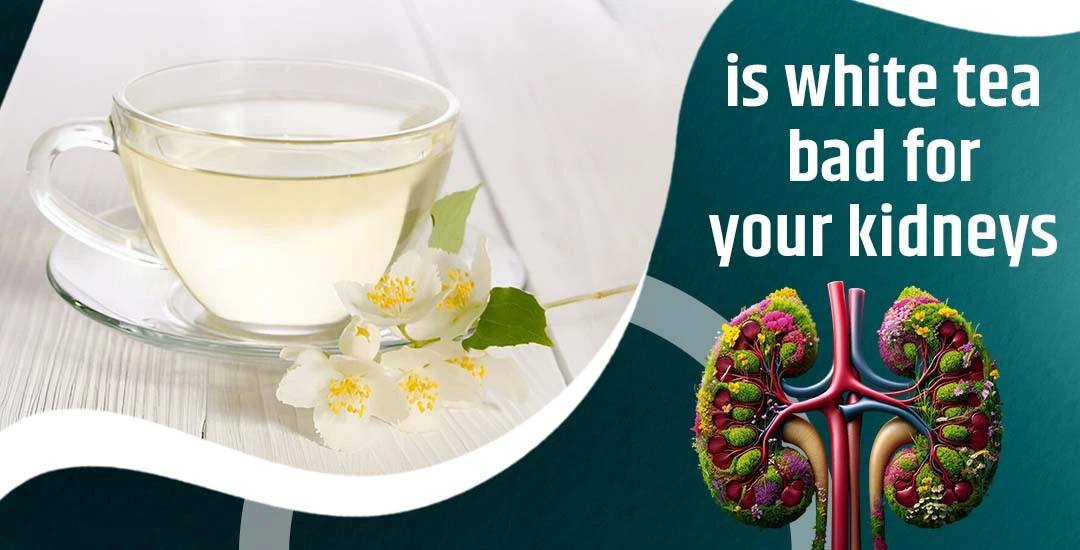
White Tea and Kidney Health: What No One Tells You
When it comes to tea, we all have our favorites. Some people are die-hard green tea sippers, some won’t function without black tea, and then some feel fancy sipping white tea. You know, the delicate, slightly sweet cousin in the tea family who acts like it doesn’t have to try too hard.
But if you’re someone dealing with kidney concerns (or you’re just health-conscious and slightly paranoid; don’t worry, we all Google symptoms at 2 a.m.), you may be wondering: “What are the health benefits of white tea for kidney health?”
Well, grab your cup (of white tea or water; no judgment), and let’s break it down in a fun, easy-to-digest way.
First Things First: What Exactly Is White Tea?
If tea were a family, here’s how it would look:
- Black tea: The bold, caffeinated older sibling who’s always dramatic.
- Green tea: The health-conscious middle child who does yoga.
- White tea: The youngest, shy one, picked early, barely processed, light and subtle, but secretly very powerful.
This tea is made from the young leaves and buds of the tea plant. Because it’s the least processed, it’s packed with antioxidants and has a much gentler caffeine kick compared to coffee or black tea. The secret agent that packs the punch while going undetected all through.
White Tea and Kidneys: The Big Question
So, let’s get to it: Is white tea bad for your kidneys?
Short answer: No, not really. Consuming white tea in moderation can have a positive impact on your health.
Long Answer: White tea has antioxidants called catechins, which help fight oxidative stress. These antioxidants in white tea combat oxidative damage in the renal cells, resulting in healthier kidneys.
Health Benefits of White Tea
-
Rich in Antioxidants
Antioxidants present in white tea combat inflammation and free radical damage in the renal tissues.
-
Gentle on Caffeine
Unlike strong coffee, white tea has much less caffeine. Excess caffeine can dehydrate you, make your heart race, and, in some cases, increase the workload on your kidneys. So, white tea is like the kinder, gentler option.
-
Hydration Support
A warm cup of white tea is still mostly water, which helps you stay hydrated, eventually resulting in healthier kidneys.
The Cons (Yes, There Are a Few)
Too Much Oxalate
Some teas, including white tea, have a good number of oxalates in them. High oxalate intake can contribute to kidney stone formation. If you’ve ever had a kidney stone, you know it’s like trying to pass a Lego brick through your body; painful and dramatic.
Caffeine Isn’t 100% Innocent
Even though white tea has less caffeine than coffee, consuming it without any inhibitions can cause a spike in caffeine consumption.
Additives Make It Worse
If you’re loading your white tea with sugar, creamers, or artificial flavors, you might be undoing all the benefits. That’s like ordering a “diet” soda with a triple cheeseburger; it kind of defeats the purpose.
How Much White Tea Is Safe for Kidney Health?
Moderation is the magic word here. For most people, 2–3 cups of white tea per day is perfectly safe and may even benefit the kidneys.
But if you’re dealing with specific kidney conditions (like chronic kidney disease, kidney stones, or high creatinine levels), it’s wise to ask your doctor before making white tea your all-day beverage. Remember, your kidneys already have enough work to do without you making them filter liters of tea like they’re running a 24/7 tea café.
White Tea vs. Other Teas for Kidneys
- Black Tea: Higher in caffeine and oxalates; higher risk of kidney stone formation.
- Green Tea: Antioxidant superstar, but has oxalates.
- Herbal Teas: Depends on the herb; some are kidney-friendly (like chamomile), others not so much (like starfruit tea).
- White Tea: Sits nicely in the middle; gentle, antioxidant-rich, less likely to cause trouble.
Who Should Be Careful with White Tea?
- People with kidney stones: Especially calcium oxalate stones, since tea can add to the oxalate load.
- People with advanced kidney disease: Because your kidneys are already struggling, adding caffeine or oxalates can make things tougher.
- People drinking tea like it’s water: Sorry, but six giant mugs a day may not be your best life choice.
Tips to Enjoy White Tea Safely
- Limit to 2–3 cups daily. Don’t try to break a world record for most tea consumed in a day.
- Buy high-quality white tea. Cheaper versions may compromise on quality, processing, etc.
- Drink plain or with a squeeze of lemon. Skip the sugary stuff; your kidneys (and waistline) will thank you.
- Stay hydrated with water too. Tea is not a substitute for plain H₂O.
- Balance your diet. Don’t rely on tea alone to “detox” your kidneys. Your body has kidneys for that exact job.
Final Sip: Should You Worry?
White tea is not bad for your kidneys if you track the amount you consume. But remember, balance is everything. If you’re already dealing with kidney issues, check with your doctor before making white tea your new best friend. And please, don’t drown your tea in sugar unless you want your kidneys to stage a protest.
So go ahead; sip your cup, feel a little fancy, and know that your kidneys are probably just fine with it. Just don’t invite them to an all-you-can-drink tea party.
FAQ
Is white tea good for health?
Yes, it’s rich in antioxidants, supports heart health, skin, and overall immunity.
Who should avoid white tea?
People sensitive to caffeine, pregnant women, or those with certain heart conditions should limit or avoid it.
Does white tea have caffeine?
Yes, but in smaller amounts than green or black tea.
